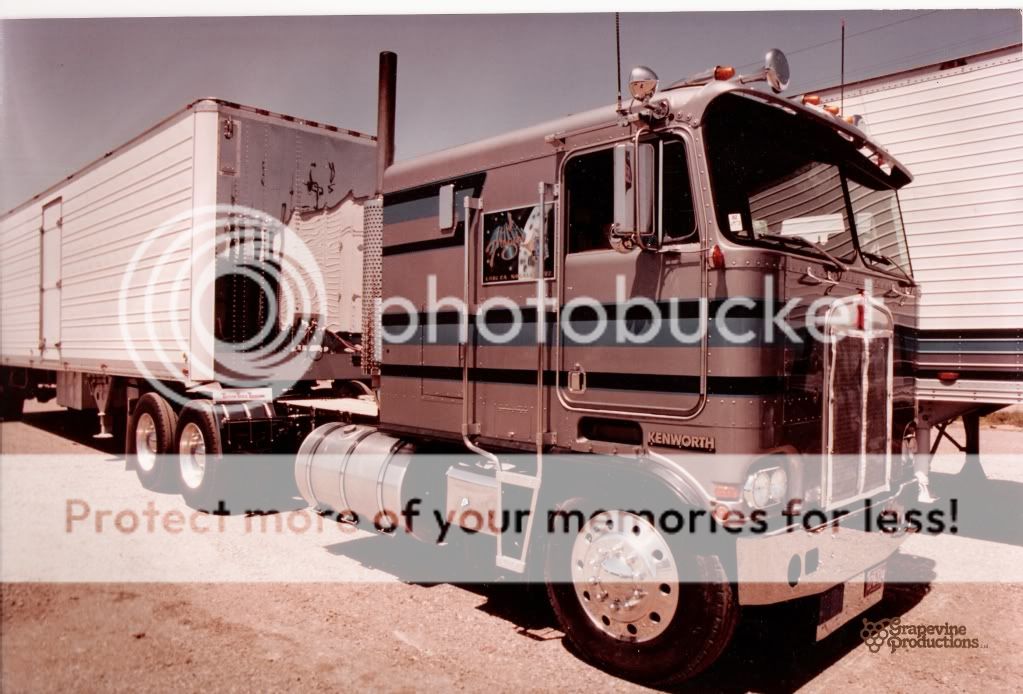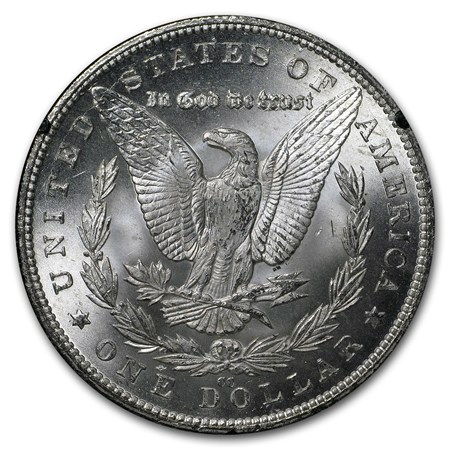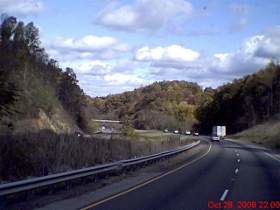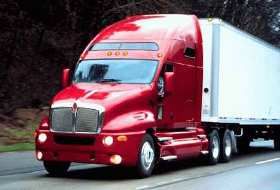This Is Getting Real
Topic 14882 | Page 1

Windfish
That's awesome.......and encouraging.
I'm continuing to research companies, and still considering private CDL school
Windfish, I've seen so many that are new to this just wear themselves out doing research. I'm not saying you're doing that, but just wanted to point out that Prime is an excellent place to not only start, but even to make a career. I have no affiliation with Prime, and receive no benefit by recommending them to you.
I think their hands on, one on one training is the best that's out there, and on top of that they have the best pay scale for rookies that I have seen. You can't go wrong there. Just so you understand it, I see no advantage to private schools. I went to a private school, but in retrospect, from a financial perspective, there is really not a lot of good reaons to lay out your hard earned money when there are so many options available to someone like yourself who has already been approved for company sponsored training.
CDL:
Commercial Driver's License (CDL)
A CDL is required to drive any of the following vehicles:
- Any combination of vehicles with a gross combined weight rating (GCWR) of 26,001 or more pounds, providing the gross vehicle weight rating (GVWR) of the vehicle being towed is in excess of 10,000 pounds.
- Any single vehicle with a GVWR of 26,001 or more pounds, or any such vehicle towing another not in excess of 10,000 pounds.
- Any vehicle, regardless of size, designed to transport 16 or more persons, including the driver.
- Any vehicle required by federal regulations to be placarded while transporting hazardous materials.
Company Sponsored Training:
A Company-Sponsored Training Program is a school that is owned and operated by a trucking company.
The schooling often requires little or no money up front. Instead of paying up-front tuition you will sign an agreement to work for the company for a specified amount of time after graduation, usually around a year, at a slightly lower rate of pay in order to pay for the training.
If you choose to quit working for the company before your year is up, they will normally require you to pay back a prorated amount of money for the schooling. The amount you pay back will be comparable to what you would have paid if you went to an independently owned school.
Company-sponsored training can be an excellent way to get your career underway if you can't afford the tuition up front for private schooling.

I understand OP. I personally struggled with the idea of going to private school, or going through company sponsored training. I ultimately ended up going with private school as I just happened to have a financial situation workout in my favor. I also didn't want to be in debt to a company as far as paying back a school for training in case I left for a different outfit. But in retrospect, for what I paid (4300) I really don't think what I learned was all that great. They taught us the basics, but there were a few things I felt were severely left out, and or just not touched on enough. Where as I would hope going through company paid training you'd get a much more thorough teaching. But I could be wrong on that assumption as well. The only plus to going to private school, is you're a free agent upon graduation. You can wherever, and work for whoever you please without having to pay anyone back. But in reality, if you feel solid about PRIME and you plan on staying there and not just jumping ship early then it really doesn't matter. Best of luck to you driver.
Dave
Company Sponsored Training:
A Company-Sponsored Training Program is a school that is owned and operated by a trucking company.
The schooling often requires little or no money up front. Instead of paying up-front tuition you will sign an agreement to work for the company for a specified amount of time after graduation, usually around a year, at a slightly lower rate of pay in order to pay for the training.
If you choose to quit working for the company before your year is up, they will normally require you to pay back a prorated amount of money for the schooling. The amount you pay back will be comparable to what you would have paid if you went to an independently owned school.
Company-sponsored training can be an excellent way to get your career underway if you can't afford the tuition up front for private schooling.

So I took the plunge and applied to Prime after doing my research. I got a call from them yesterday. They confirmed things I've read as far as training, pay, and questions about the company. They mentioned a TX, AR, OK, LA regional run too (I'm interested in going to all 48 though, as home time isn't essential to me for now). They said if everything on my background checks out, they could have me in orientation on 6/20. I said that's a little soon for me but I appreciate the positive response.
I'm continuing to research companies, and still considering private CDL school, but confidence is high.
I run these states for w/s (for another week anyway) and I can tell you they are great, except OK, I don't like running in OK, even though the coolest truck stop ever is about 30 mins east of Woodward.
AR is pleasant and trucker friendly. Everything in Texas happens quickly....be cautious of the truck stops around Dallas. The north side of LA is cool, the south not so much, but I can bare it better then OK.
CDL:
Commercial Driver's License (CDL)
A CDL is required to drive any of the following vehicles:
- Any combination of vehicles with a gross combined weight rating (GCWR) of 26,001 or more pounds, providing the gross vehicle weight rating (GVWR) of the vehicle being towed is in excess of 10,000 pounds.
- Any single vehicle with a GVWR of 26,001 or more pounds, or any such vehicle towing another not in excess of 10,000 pounds.
- Any vehicle, regardless of size, designed to transport 16 or more persons, including the driver.
- Any vehicle required by federal regulations to be placarded while transporting hazardous materials.
Regional:
Regional Route
Usually refers to a driver hauling freight within one particular region of the country. You might be in the "Southeast Regional Division" or "Midwest Regional". Regional route drivers often get home on the weekends which is one of the main appeals for this type of route.
TheGuyCalledDave says:
I also didn't want to be in debt to a company as far as paying back a school for training in case I left for a different outfit. But in retrospect, for what I paid (4300) I really don't think what I learned was all that great. They taught us the basics, but there were a few things I felt were severely left out, and or just not touched on enough.
It's nice you are financially able to kiss $4300 good bye. But with so many companies offering bonuses or 1 year work-offs for school, I'd say you took the wrong route. If you made the right decision at the start (a good idea) you wouldn't need to jump companies early and mess up your work record.
As for your skimpy schooling ("a few things left out."), every school out there only teaches you enough to pass the CDL tests. Once you have that full CDL in your hand, your still not good enough to land a job. That's why every company will insist on some kind of paid road training for you.
CDL:
Commercial Driver's License (CDL)
A CDL is required to drive any of the following vehicles:
- Any combination of vehicles with a gross combined weight rating (GCWR) of 26,001 or more pounds, providing the gross vehicle weight rating (GVWR) of the vehicle being towed is in excess of 10,000 pounds.
- Any single vehicle with a GVWR of 26,001 or more pounds, or any such vehicle towing another not in excess of 10,000 pounds.
- Any vehicle, regardless of size, designed to transport 16 or more persons, including the driver.
- Any vehicle required by federal regulations to be placarded while transporting hazardous materials.

Old School is exactly right. I'm falling victim to something I used to loath myself. I called it "paralysis by analysis." I saw this many times in my previous career when I'd have clients come into my office with a stack of printouts and tons of research, and it didn't help them make a decision any faster.
I've been looking into companies with good training programs and the information on this site has been very helpful. I also agree with Old School about private schools. The two I've been considering cost $4,300, and I could find the money if I wanted to go that route, but why pay that much up front if I'm going to want to stay with a company for at least a year or more anyway? I don't qualify for a WIA grant because I already have a college degree.
I've added Roehl to my list. Their training program looks top notch.

TheyCallMeDave wrote:
They taught us the basics, but there were a few things I felt were severely left out, and or just not touched on enough. Where as I would hope going through company paid training you'd get a much more thorough teaching. But I could be wrong on that assumption as well.
All of the schools teach you the basics, nothing more than enough to pass the CDL. They real nitty-gritty learning occurs during the 2-3 months of road training after the school.
IMHO taking the sponsored route creates a far more seamless transition from getting the CDL to actually road training with the same company. You are all but guaranteed a job if you successfully complete the schooling/training. No need to worry about sending in applications, the follow-up phone calls and the stress of not knowing. When I attended Swift's Richmond Academy, I went from graduation, to passing the CDL tests to the Mentor's truck in less than one week. The other advantage of company sponsored, the company has already invested in the student with no intention of allowing a failure to occur without decisive, corrective action. We have seen countless examples of a company working with a student to help them learn and recover from mistakes.
CDL:
Commercial Driver's License (CDL)
A CDL is required to drive any of the following vehicles:
- Any combination of vehicles with a gross combined weight rating (GCWR) of 26,001 or more pounds, providing the gross vehicle weight rating (GVWR) of the vehicle being towed is in excess of 10,000 pounds.
- Any single vehicle with a GVWR of 26,001 or more pounds, or any such vehicle towing another not in excess of 10,000 pounds.
- Any vehicle, regardless of size, designed to transport 16 or more persons, including the driver.
- Any vehicle required by federal regulations to be placarded while transporting hazardous materials.
OWI:
Operating While Intoxicated

So I took the plunge and applied to Prime after doing my research. I got a call from them yesterday. They confirmed things I've read as far as training, pay, and questions about the company. They mentioned a TX, AR, OK, LA regional run too (I'm interested in going to all 48 though, as home time isn't essential to me for now). They said if everything on my background checks out, they could have me in orientation on 6/20. I said that's a little soon for me but I appreciate the positive response.
I'm continuing to research companies, and still considering private CDL school, but confidence is high.
I looked into prime before I had to go with PAM because I had gotten a seatbelt ticket 2 years ago that I forgot about and it led to my DL being pulled so because I had a suspension and had only gotten my DL back a year and half ago they turned me down but I would have went with them in a heart beat just because of the environment that they create for their drivers.
CDL:
Commercial Driver's License (CDL)
A CDL is required to drive any of the following vehicles:
- Any combination of vehicles with a gross combined weight rating (GCWR) of 26,001 or more pounds, providing the gross vehicle weight rating (GVWR) of the vehicle being towed is in excess of 10,000 pounds.
- Any single vehicle with a GVWR of 26,001 or more pounds, or any such vehicle towing another not in excess of 10,000 pounds.
- Any vehicle, regardless of size, designed to transport 16 or more persons, including the driver.
- Any vehicle required by federal regulations to be placarded while transporting hazardous materials.
Regional:
Regional Route
Usually refers to a driver hauling freight within one particular region of the country. You might be in the "Southeast Regional Division" or "Midwest Regional". Regional route drivers often get home on the weekends which is one of the main appeals for this type of route.

Well there is a bit of a difference in company sponsored school or one that you pay yourself.
I myself paid for my own school. Do I regret it? Hell no. Why? Because I was able to start out with Ozark and make 39 CPM on first day of solo. Training days made 25 CPM but that was as a team with the trainer. When trainer drove, I still made 25 CPM. Those first few weeks made some serious money, which was a much needed boost to my finances.
Do how long did I have to drive to make up the money lost? Just a rough estimate, about 14 weeks in, and I'm ahead of the game.
CPM:
Cents Per Mile
Drivers are often paid by the mile and it's given in cents per mile, or cpm.
HOS:
Hours Of Service
HOS refers to the logbook hours of service regulations.OOS:
When a violation by either a driver or company is confirmed, an out-of-service order removes either the driver or the vehicle from the roadway until the violation is corrected.
New Reply:
New! Check out our help videos for a better understanding of our forum features

















Preview:








 TT On Facebook
TT On Facebook
So I took the plunge and applied to Prime after doing my research. I got a call from them yesterday. They confirmed things I've read as far as training, pay, and questions about the company. They mentioned a TX, AR, OK, LA regional run too (I'm interested in going to all 48 though, as home time isn't essential to me for now). They said if everything on my background checks out, they could have me in orientation on 6/20. I said that's a little soon for me but I appreciate the positive response.
I'm continuing to research companies, and still considering private CDL school, but confidence is high.
CDL:
Commercial Driver's License (CDL)
A CDL is required to drive any of the following vehicles:
Regional:
Regional Route
Usually refers to a driver hauling freight within one particular region of the country. You might be in the "Southeast Regional Division" or "Midwest Regional". Regional route drivers often get home on the weekends which is one of the main appeals for this type of route.